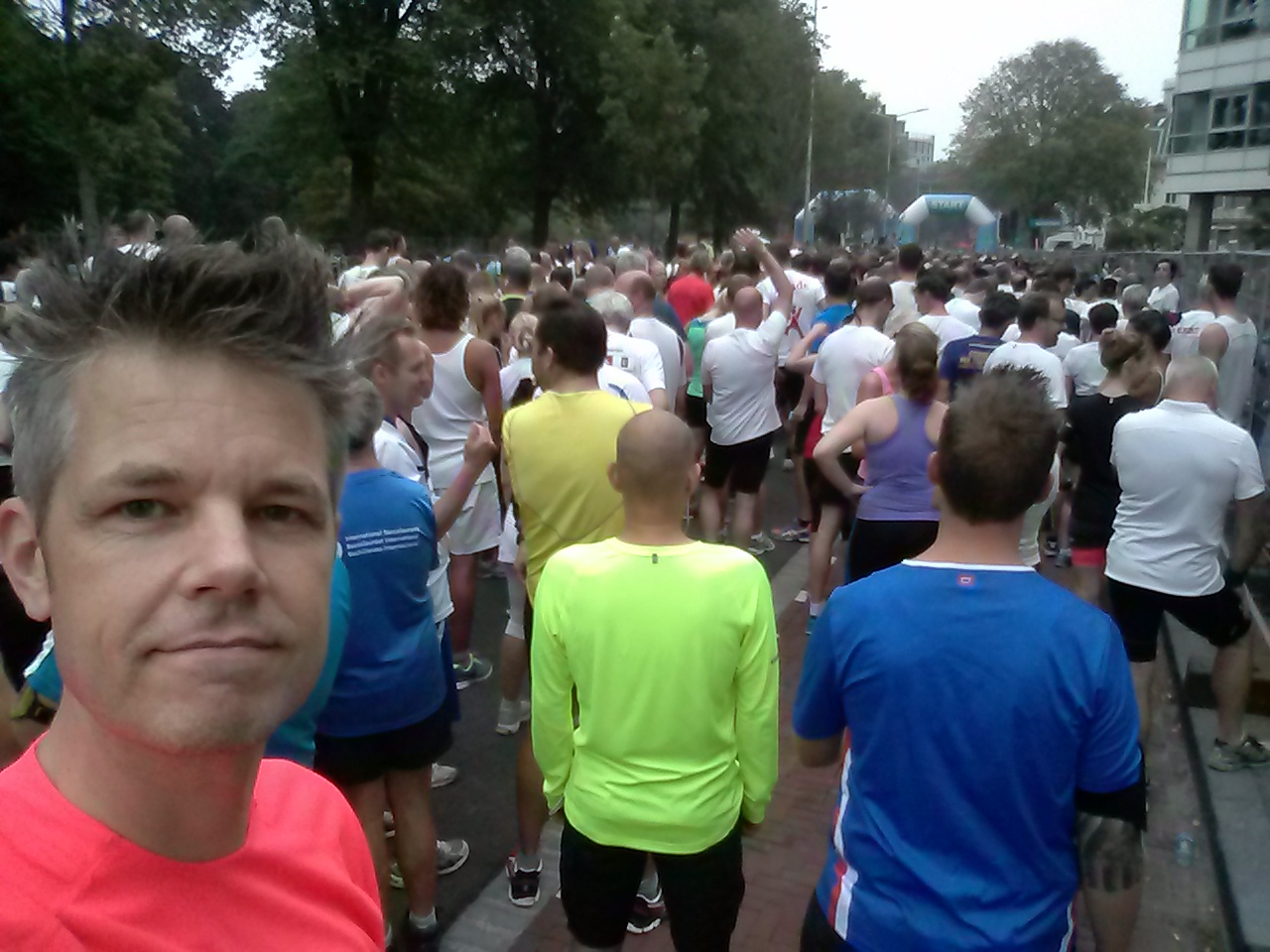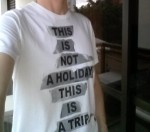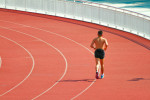My book tour was crazy, exciting, ambitious, and exhausting. The start of the tour now…

The Results of My First OKRs (Running)
A popular topic in the new one-day Management 3.0 workshop is the OKRs system for performance measurement. (See Google’s YouTube video here.) Instead of explaining what OKRs are, I will just share with you the result of my first iteration. If you read this, you will get the general idea of how the OKRs system works.
The Objective
I had two objectives for the 3rd quarter of this year (ending this week). One of them was work-oriented (for Happy Melly), the other was private. I might share the work-related objective with you another time. I defined my private objective was as follows:
Be a healthy runner
That’s it. At the end of June, I had just started running, and I had made some stupid mistakes. This resulted in a lot of pain. {8-(
Therefore, I decided I would spend the next three months learning how to run properly, and I wanted to make good progress as a healthy runner.
The Key Results
The objective, being a “healthy” runner, is not measurable. Therefore, I had to define four key results that would act as proxy variables. This is what I wrote at the end of June:
- run 75 km per week (it was 30 km)
- run at least 10 km per day (it was 6 km)
- average running time < 55 min/10 km
- no pain in my back, legs, or feet
Considering that the standard iteration-length of OKRs is three months, I resolved to evaluate my performance at the end of September.
The Grades
Well, the results are in! That means, now it is time to grade myself.
Key Result 1: Run 75 km per week
This was clearly too ambitious. I increased my distance with a safe margin of between 5% and 10% per week (sometimes not increasing it at all). The last two weeks I ran 50 kilometers. I’m quite happy with that. I could have increased to 60, but my left knee has been giving me a warning sign. An increase from 30 to 50, instead of 75, means that I get a score of only 44% on this key result.
Key Result 2: Run at least 10 km per day
I performed very well on this one. Nearly all my runs in the last couple of weeks were between 10 and 20km each. I don’t think I’m allowed to give myself a score of more than 100, so I will settle for 100% on this key result.
Key Result 3: Average running time < 55 min/10 km
On Saturday, I ran 10km in under 54:25 minutes and on Sunday I ran 11km in 60 minutes. It appears I hit this target square in the middle! I will give myself 100% for this one too. I deserved it. 🙂
Key Result 4: No pain in my back, legs, or feet
My intention was to run injury-free. However, as I said, my left knee has given me a warning sign last week. Fortunately, I’m not in pain. And it’s not bothering my when I walk or run. But the knee clearly likes to have a bit more rest, which means I’ve been pushing a bit too hard. That’s why I grade myself 75% on this key result.
An important aspect of OKRs is that they enable honest self-assessment. They are my own targets and my own measurements. There’s no reason to game the system, because I already have full control over it.
The Evaluation
When I calculate the average of the grades, I get 80%. That’s good.
At Google, they say the ideal range is between 60%-70%. If you score 90% or higher, your targets probably weren’t ambitious enough. If you score 50% or lower, you were probably too ambitious. I think my 80% is fine, and I feel good about it.
On a sidenote: I totally failed the work-related OKRs. This means I’ve given myself a great learning opportunity there! {8-)
The Next Iteration
So what’s next?
I have established that I’m a healthy runner. Now I want to run both further and faster. This is my new OKR for the 4th quarter:
Objective: be a good runner
Key Results:
- Run 10km in under 50 minutes (now: 55 minutes)
- Run 20km in under 120 minutes (now: 140 minutes)
Run 75km per week (now: 55 km)-
Do 7 exercises per day, 7 times per week
- Run injury-free
This week, I give myself some time off.
The new iteration starts next week.







